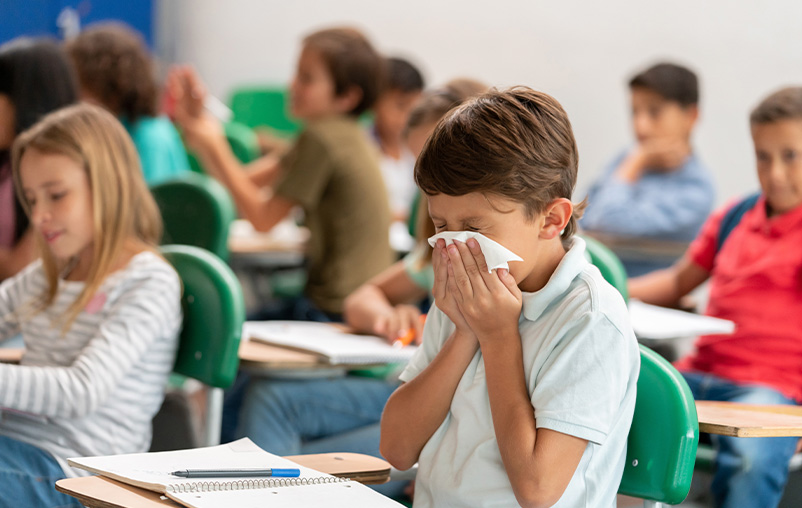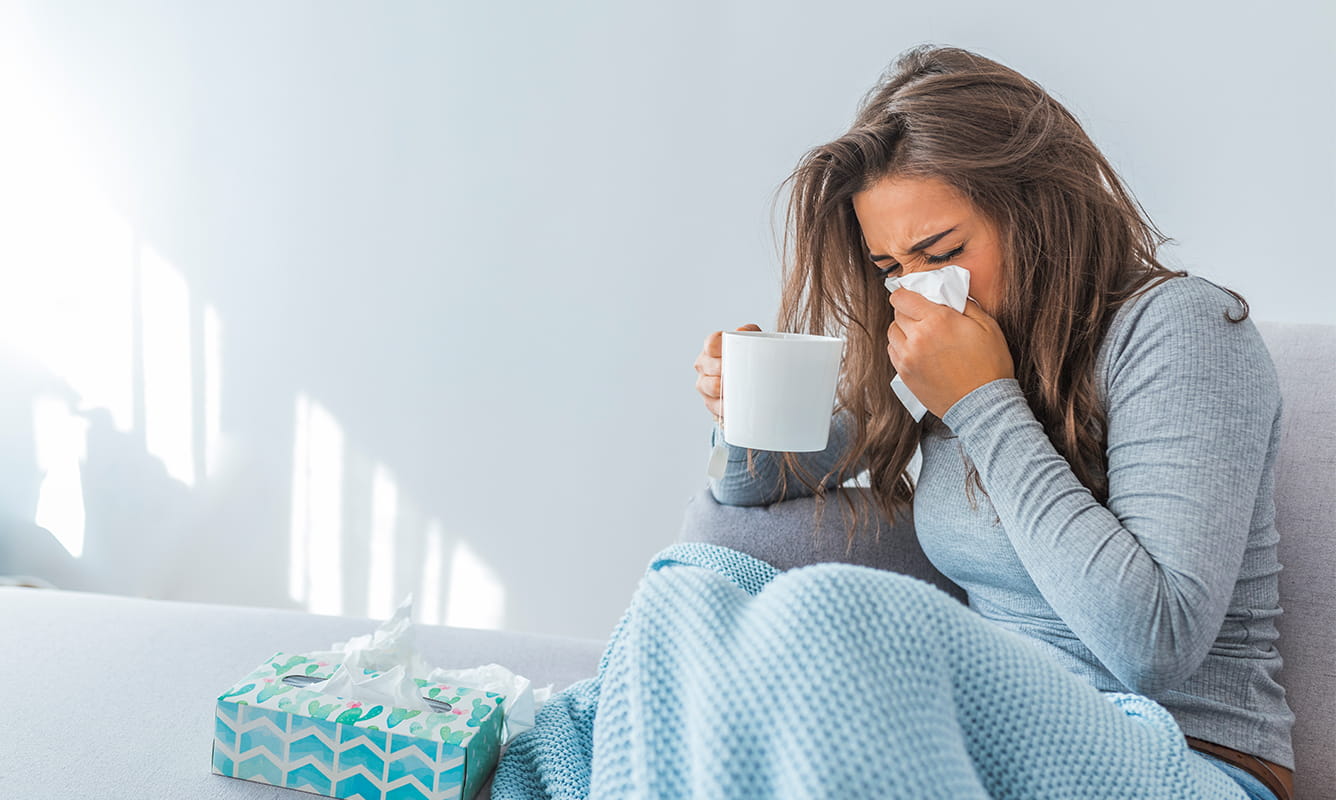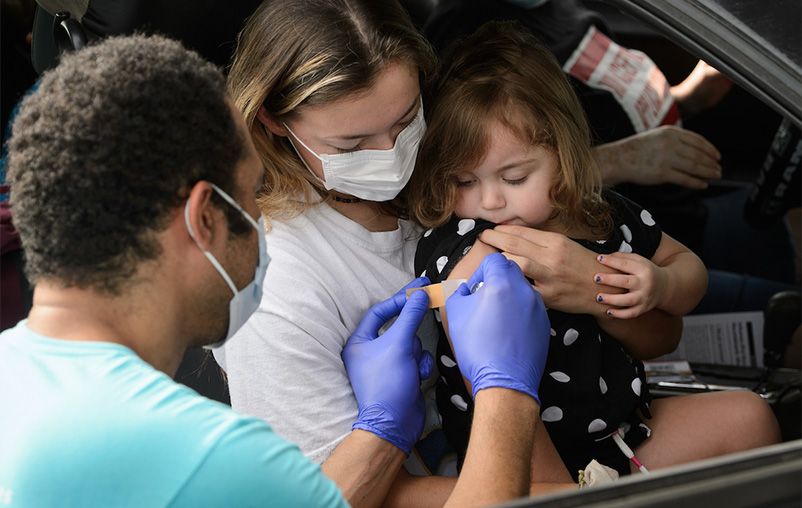Last updated April 13, 2020 with information about symptoms, testing procedures and prevention techniques.
If you believe you have COVID-19, call your doctor’s office or an urgent care center. To avoid spreading COVID-19 to others, do not visit a medical facility unless you are instructed to do so. Only visit an emergency room if you have a life-threatening emergency.
COVID-19 has transformed nearly everything about daily life. With details changing rapidly as the virus spreads, it can be difficult to know which information to trust or how to protect yourself. Some basic knowledge of the virus and a few prevention techniques could keep you healthy and help prevent its spread in the community.
Are coronavirus and COVID-19 the same thing?
Coronaviruses are a family of common viral pathogens that can spread to humans and certain animals. In late 2019, a new coronavirus was identified as the cause of the recent outbreak of an upper-respiratory infection called coronavirus disease 2019, or COVID-19. On March 11, 2020, the World Health Organization declared that COVID-19 is a global pandemic.
How can I protect myself against COVID-19?
- Stay home
- Call your doctor if you feel ill
- Wash your hands with soap and water regularly for at least 20 seconds
- Avoid touching your face with unclean hands
- Practice social distancing (see below)
- Wear a mask or face covering when in public
According to UT Health San Antonio infectious disease specialist Dr. Jason Bowling, prevention techniques are similar to common practices to avoid the common cold and flu. “One of the key things people can do is wash their hands either with soap and water or with alcohol-based hand rub,” says Dr. Bowling. “It’s also important for people to use good respiratory etiquette. By that we mean either coughing into their sleeve or covering their mouth and nose with a tissue.”
To wash your hands effectively, lather with soap and water for a minimum of 20 seconds, scrub between your fingers, and rub your nails on the opposite hand to clean the nail beds.
Wearing a face covering such as a mask or bandana when going out in public may help prevent the spread of COVID-19 from person to person. Wearing a face mask is not a suitable replacement for staying home and practicing social distancing.
You can also help prevent the spread of COVID-19 by cleaning and disinfecting surfaces you often touch with a disinfecting wipe.What are the symptoms of COVID-19?
Dr. Bowling says COVID-19 tends to affect the upper and lower airways. The most common symptoms are:
- Fever
- Cough
- Shortness of breath or difficulty breathing
Less common symptoms associated with COVID-19 include:
- Vomiting or diarrhea
- Loss of taste or smell
- Body aches or chills
The Centers for Disease Control and Prevention report that up to 25% of people who become infected with COVID-19 may show no symptoms at all.
The CDC advises, that although most cases are mild, people with more severe cases of COVID-19 may also experience difficulty breathing or develop pneumonia. Older patients and those with pre-existing respiratory conditions are at higher risk to develop more severe symptoms.
What should I do if I think I have COVID-19?
First and foremost, it’s important to stay home to avoid infecting others, says Dr. Bowling. Pay attention to your symptoms, and if you think you have COVID-19 follow the guidelines below.
- If you're feeling sick, first call your primary care physician’s office.
- If you don’t have a primary care physician, call any urgent care or walk-in clinic in our community. Call ahead before visiting any medical facility to avoid spreading the virus to others.
- Don't go to an emergency room unless you have a life-threatening emergency.
What is social distancing?
Social distancing is the conscious effort to reduce close contact between people and combat the spread of an illness. Social distancing can take many forms in your daily life, but often include:
- Compliance with local declarations by staying home
- Working from home
- Maintaining a distance of six feet from others when you must go out in public
- Avoiding handshaking, hugging and other close-contact activities with anyone outside of your household
Can I be tested for COVID-19 if I have a fever and cough? How does testing work?
Testing is based on your symptoms and/or your exposure to COVID-19. A physician or healthcare provider can refer you to a testing facility. If you believe you have COVID-19 but do not have a primary care physician, you can take the self-assessment offered by San Antonio Metro Health to be referred for testing.
- Samples are tested locally with screening kits provided by the CDC.
- Community physicians and other clinical providers have access to CDC protocols to determine whether or not patients qualify for testing for COVID-19.
- Healthcare workers can be tested at certain “drive-thru” test sites if referred by their organization.
For more information about the testing criteria and process, visit the San Antonio Metro Health website.
How is COVID-19 treated?
There is no known treatment or vaccine for COVID-19. While the majority of people who get the disease will recover on their own, some cases are more severe. If you think you have been exposed to COVID-19 or you are showing symptoms of the disease, contact your doctor right away.
I still have questions about COVID-19. Who can I talk to?
San Antonio Metropolitan Health District has set up a hotline for people with questions or concerns about COVID-19. The hotline is available in English and Spanish from 8 a.m. – 5 p.m. Monday – Friday. Call 210-207-5779.
You can also learn more about COVID-19 on the CDC's website, which is updated regularly with the most current information about prevention measures and the spread of the disease.
This article will be updated with new information as it becomes available.
For information about restricted visitation policies at University Hospital, visit the University Health System's COVID-19 web page.




